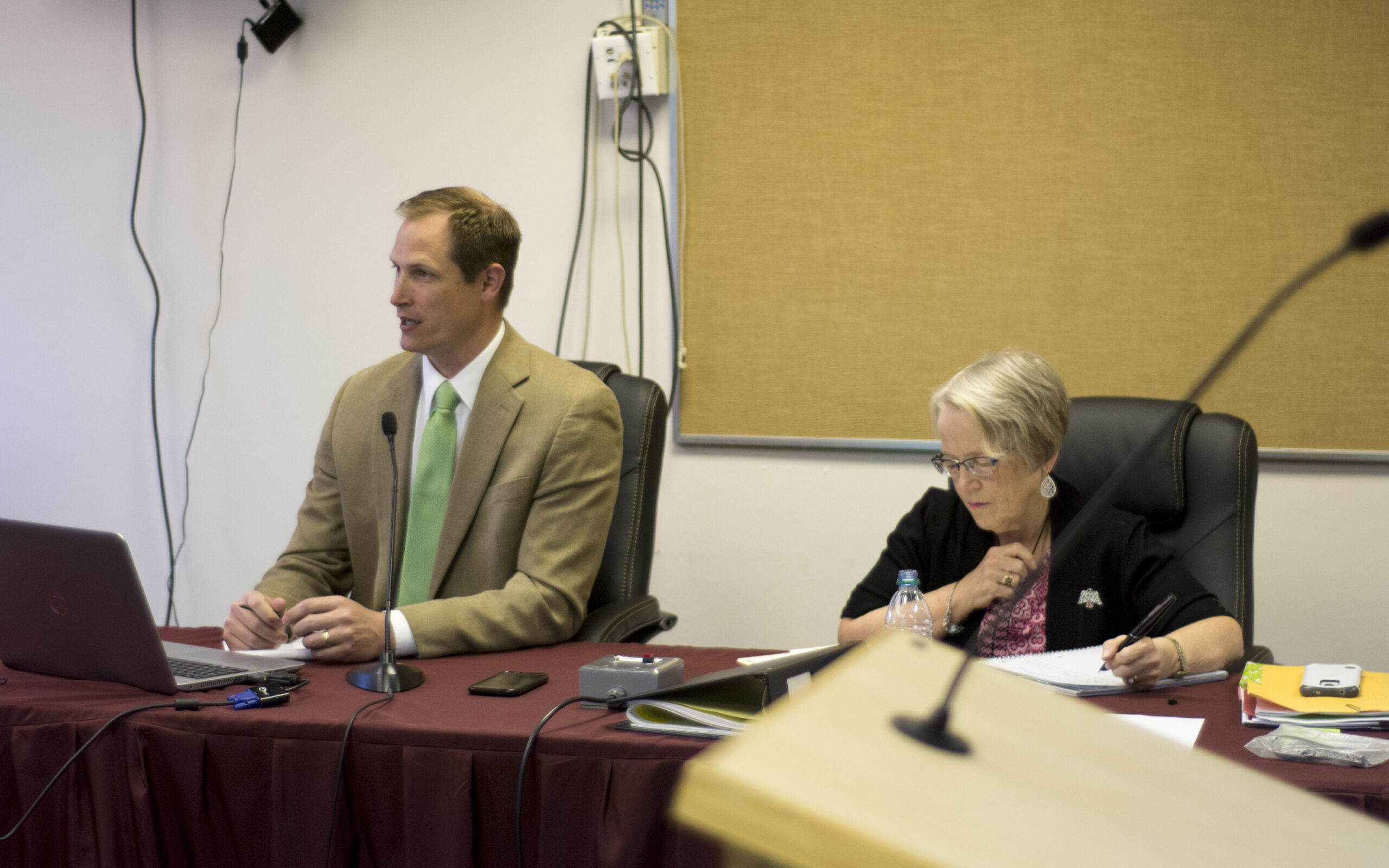
CARIBOU, Maine — Caribou city councilors discussed the possibility of changing their budget cycle to a fiscal year, as opposed to a calendar year, in order to line up their budgetary process with the school, county, and state.
Councilors approved the 2018 expense budget totaling $9,937,365 in mid-December of last year. That budget represents a 2.96 percent increase over 2017’s budget of $9,651,899.
Then they approved the revenue budget in mid-March of this year at $9,696,508, or about $250,000 short of the expense budget. In documents shared with councilors at their May 29 meeting, City Manager Dennis Marker also cited unanticipated increases in expenses related to the city airport and repairs to the River Road.
Despite those budget issues, city officials said the 2017 mill rate of 23.90 likely will not increase because the city last year spent $384,137 less than budgeted and received $50,622 more than anticipated in revenues. That gave officials a total of $437,759 in surplus to help offset any budget increase this year. In addition, officials removed $250,000 alloted in the current budget for air ambulance services.
Since councilors did not vote to make any changes to either the expense or revenue budget, the final budget (consisting of both the expenses and revenues) will be officially available by the end of May.
However, Caribou officials will not be able to set the yearly mill rate until late June due to the terms of the city’s charter.
Mayor David Martin compared this to “taking the stitches off a wound” before it heals, and Marker agreed that the charter’s requirements are a “a little bit backwards.”
“It’s hard to say what the final numbers will be,” Marker said, “we won’t even know the final commitment until the end of June.”
Councilor Mark Goughan said he finds the city’s current “budget process to not be the best” in his opinion, and that if “a few more issues” related to the city charter arise, then he would consider going through the process of making changes.
Councilor Phil McDonough agreed.
“I think it’s time to take a serious look at aligning our fiscal calendar with everyone else’s,” he said. “Then we wouldn’t have these issues, and it will all come out along with the state, school department, and county. We’re still operating on an annual calendar, while they’re on a fiscal calendar. They’re doing their budgets while we’re sitting here waiting.”
Martin said councilors have previously discussed transitioning to a fiscal budget year, adding that the “killer is that you end up getting two tax bills in one year” during the transition.
McDonough said the change would not technically cause an increase in taxes, and residents ultimately still would be required to pay the same amount.
“But tell that to the guy that just paid $3,000 in June,” Martin said, “and now he has to pay $1,500 more in November for the half-year so we can line everything up.”
Councilor Hugh Kirkpatrick asked if this issue would only occur during the year of the change, which Martin confirmed.
“They don’t pay any more in the long run,” the mayor continued, “but it sure looks like it during that first year. The charter can be changed. We have to have [an expense] budget done by the first of January because that’s when our year is done. That’s why you see splits, because the state is on a fiscal, July to July, calendar and we’re on a January to January [budget year]. That’s why you see two amounts. One is for the first half and the other is for the second half.”
McDonough said that, since he and other councilors have been discussing the mismatching budget years for “the last two or three years,” perhaps Caribou should realign its budgetary calendar.
“It would be a little difficult for everybody on the first year,” he said, “but after that we’d be right on track.”
Marker said he’s communicated with a few attorneys who are helping municipalities through this process, and that he will reach out and see if they have any additional information regarding the process, or a “summary sheet” detailing everything municipal officials should know about the transition.
“If you have a chance,” the mayor said, “randomly call a taxpayer in one of those towns and see what they think.”






